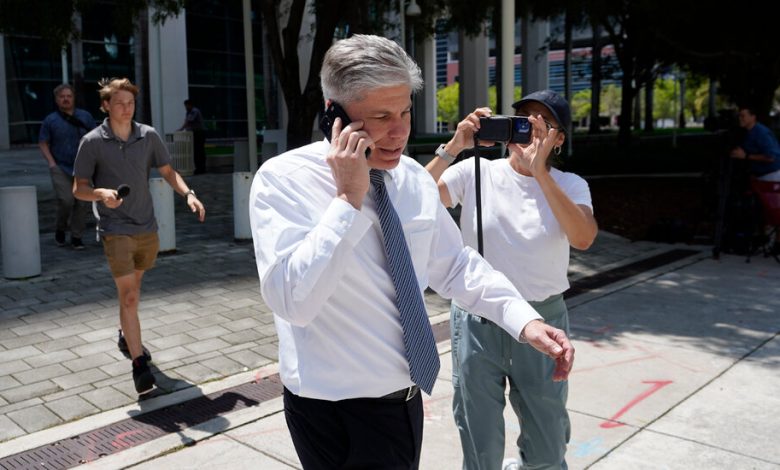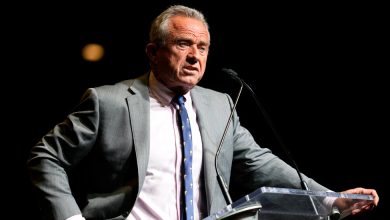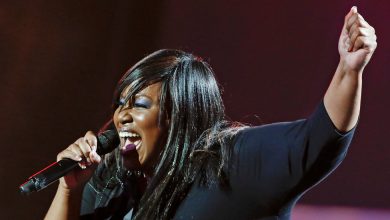Judge Scolds Prosecution at Hearing on Conflicts in Trump Documents Case

The judge overseeing former President Donald J. Trump’s coming trial on charges of mishandling classified documents scolded federal prosecutors on Thursday as she postponed a hearing on whether one of Mr. Trump’s co-defendants understood that his lawyer might have conflicts of interest.
“I do want to admonish the government for frankly wasting the court’s time,” Judge Aileen M. Cannon of the Federal District Court in Fort Pierce, Fla., told David Harbach, a prosecutor working with the special counsel Jack Smith on the case.
At issue was a request by Mr. Smith’s team that Judge Cannon hold a hearing to make sure that Mr. Trump’s co-defendants — both of whom are employed by him — understood that their lawyers, who are being paid by a political action committee affiliated with the former president and who have represented witnesses in the case, had possible conflicts.
In the case of one co-defendant, Carlos De Oliveira, the property manager at Mar-a-Lago, Mr. Trump’s private club and residence, the hearing proceeded largely without incident. Mr. De Oliveira’s lawyer, John Irving, had represented three witnesses in the case.
Mr. Harbach argued that Mr. Irving has obligations of confidentiality and loyalty to his former clients that might be challenged if he had to cross-examine them in his defense of Mr. De Oliveira or question their credibility in summations to the jury.
Judge Cannon noted those arguments were not included in filings made by prosecutors before the hearing. Mr. Irving told the court he no longer represents those witnesses. Mr. De Oliveira, asked repeated questions by the judge that he answered after explaining that English is not his first language, said he wanted to keep Mr. Irving as his lawyer.
The hearing grew more complicated when Judge Cannon, a Trump appointee, took up the case of Walt Nauta, Mr. Trump’s personal aide. Both Mr. Nauta and Mr. De Oliveira have been accused of playing roles in obstructing the government’s investigation into Mr. Trump’s handling of national security documents he took with him from the White House.
Mr. Harbach argued that Mr. Nauta’s lawyer, Stanley Woodward, had potential conflicts because of his past representation of another witness in the case. The witness has been identified in court papers only as Trump Employee 4, but people briefed on the matter have identified him as an internet technology aide at Mar-a-Lago named Yuscil Taveras.
Mr. Taveras changed his testimony to the grand jury about the involvement of Mr. Nauta and Mr. De Oliveira in Mr. Trump’s alleged interest in deleting security footage from the club that the government had subpoenaed.
Mr. Taveras changed his testimony after a Washington-based judge assigned a public defender to speak with him, and he dropped Mr. Woodward as his lawyer. He is seen as a crucial witness in the case the government filed this summer against the three men.
Mr. Woodward protested during the hearing on Thursday, saying it was not clear exactly what the prosecutors were asking the judge to do or arguing for. He said that under the circumstances, it would not be fair to ask Mr. Nauta whether he waived his rights related to having a lawyer without conflicts.
“It seems intrinsically unfair to ask Mr. Nauta in this hypothetical world we’ve created” whether he was comfortable going forward with Mr. Woodward as his lawyer, he said.
Judge Cannon rebuked Mr. Harbach as being overly vague in his request. Saying it was impossible to fairly hold the hearing under the circumstances, she postponed it to a later date.




